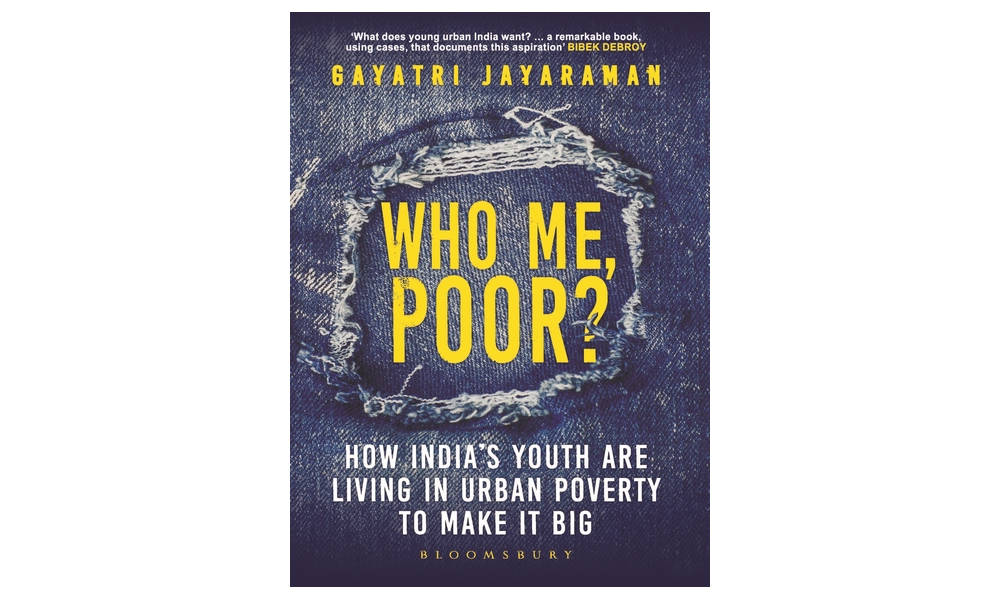“You’re spending outside your comfort zone, if not income zone”
– Raja Ganapathy, 45, Director-Marketing & Communications, Sequoia Capital
One of the unique features of cities like Mumbai is the proximity of the very wealthy and the very poor. You have Mercedes and Audis coming out of high rises into chawls and slums that face them. This cheek-by-jowlness of modern life propagates an inequality that creates grievances. It becomes very hard not to ask ‘why am I deprived of this life?’ Inequality is the equivalence between one month’s salary and the cost of one dinner, and yet, to have them interlinked such that each—the very wealthy and the very poor—depend on each other for their survival, is the paradox of modern life.
What we are witnessing today has little to do with the much maligned start-up culture and more to do with how life has evolved in these gaps. And much of the consumption behaviour you refer to stems from the ‘hangover of wants’ that we carry from childhood and this, I believe, accounts for a lot of our drive. I see this as an integral part of the process of evolution.
I grew up in a middle class family with severely conservative values, as most of us did, where we did not eat chocolates whenever we felt like it, and jeans were not daily wear and indulgences were an annual affair at most. So while our needs were fulfilled, there were many wants kept pending. We do not come from a culture where our every want merits fulfilment, and so we carry a hangover of wants that we’d like to see finally fulfilled. Most of us continue to carry that value system forward, in that I continue to look at the right side of a menu when I go out, even if I am better off today than I was then.
When I joined my first job, in advertising, a field known for its flamboyance, I felt a lot of social pressure. I was an anachronism. I could not dress well and I was one of three people in the management cadre to take the bus home, because I could not afford anything else and because my value systems would not allow me to. It is inevitable that you will eventually bow to that pressure. I would leave late at night so no one would see me take the bus. People would suggest casually that I take a loan and buy a car. I eventually graduated to taking an auto rickshaw. I began to upgrade my clothes. Our environments pressurise us to belong as most human beings want to conform. If advertising was showmanship, the corporate world of banking has a more formal compulsion to fit in. When I moved to a multi-national bank after ten years in advertising, I remember a colleague whose spectacle frames were slightly cracked being asked why he hadn’t fixed them yet. “Do we not pay you enough?”, the boss asked him, in front of everyone, as we looked at ourselves and each other, aghast, more afraid at being brutally called out next. It is inevitable in such environments to be driven to consumption, which if it is not outside your income levels, is outside your comfort levels.
To me, this is why start-ups are so different and the ‘start-up culture’ so much better. At heart, all founders are hackers, not just from a product perspective but from a life perspective ... Because the Start-up, in this context of received culture, is the one place where it is cool to not be dressed up a certain way. The Start-up guy is, by nature, the guy who has hacked himself a great deal or found himself discounts online. You’ll never hear him boast of paying full price for an Armani suit, more likely he will laugh about hacking himself a month-long discount at Dominos. If I look around at some of the founders I have worked with – from Sujayath Ali (Voonik) to Kunal Shah (FreeCharge) to Byju Raveendran (Byju’s) – they dress the same, work the same, speak the same as before they hit success. They are essentially ‘life hackers’. I learned that word from a start-up founder and I love what it represents. To my mind, everything else is the exception, not the rule. The start-up ethos is about not paying attention to what went before, and the generation that went before that defined how things had to be done.
Indulgences per se are not wrong. They may be wrong for me, but they won’t be for my child. It’s a very different generation out there today, far far more optimistic. If you had told me ten years ago that I would live in a certain kind of house and drive a certain kind of car, I would have said ‘no way’. Today’s generation can conceive of possibilities ten years down the line far more easily, and that reflects in consumer behaviour and spending patterns. They also do not believe in getting there ‘one day’. If one can get there ‘one day’, one should be able to get there now. They are short on patience and high on drive. Given this, I strongly feel that all debt is not necessarily bad. It means we are leveraging the future in an optimistic environment. The only thing we lack is patience, to know when to take on debt and how much and for what reasons. But truth be told, I like reading these stories of debt and struggle. They are not negative, but positive.
If anything, I believe the start-up culture is the thing keeping everyone sane. It is giving rise to an entrepreneurial spirit that speaks to the success of plodding hard work and long term creation of wealth and value. I was watching an interview of Uber founder Travis Kalanick, where he said how today Uber is a $60bn company and he hasn’t moved out of the house he lived in when he founded it, nor has he sold a single share of Uber in the last ten years. That is the passion, intensity and integrity that founders who create successful start-ups bring to the table.
So, there is clearly a stark difference between what is ‘perceived’ start-up culture and what it is. Are there those that have mistaken the perception for the reality? Yes, there are start-ups that have made mistakes. That is a tragedy, but we need to cut them some slack. For a number of reasons:
First, the media hunts for a certain kind of success story to populate its magazine covers. And those that do not fit that mould get called ‘failures’ or not quite as successful. But here is the thing, the start-up culture has allowed India to learn how to fail. We came from a culture where success at all costs is so ingrained—get that degree, join that company, get that salary, buy that house, that car, lead a certain kind of life—that the start-up’s ability to fail and rebuild on that failure is an invaluable lesson for us socially. I joined a start-up in 2000 that crashed in the first dot com bust. I was initially embarrassed at the failure and used to bury this stint in my profile. Not any more.
Secondly, it allows us to re-frame what constitutes success. To comprehend that there is not just one kind of success. The media narrative, the cinematic narrative, all seek the rags-to-riches story, the dramatic arch. It locks success and failure into binaries. Whereas, if you look at the real success stories of the start-up space, they do not all have the drama that qualifies their story to be told. Nor do all of them pay attention to marketing their stories.
Third, it all speaks to a loss of patience in this age. Overall, we have lost patience. Things must happen now, the arch needs to be narrated in a specific time frame and module. It is worrying that we are not willing to wait. If we are buying things we don’t need and are overreaching, it is because we are not pacing ourselves. So it’s not just media, but also the quest for dramatic evolution, spurred in turn, by the lack of patience of the consumer.
As VCs, life for us is long term. Patience has to be inbuilt into the backbone because you enter a company very soon and exit very late. There is rarely immediate success. Success is rarely about who raises what kind of money. Money is not the differentiator. Money has never created anything on its own. It’s about intelligent use of lean capital that comes with great company-building skills. The extension of technology to this end is merely a tool. And don’t blame technology for spurring conspicuous consumption. Copious spending is never the fault of the instrument, which at best amplifies the speed by which human nature achieves what it had always intended to.
If anything, start-ups have helped redefine success in India. Parents are waking up to the idea that being an engineer or a doctor and having a certain bank balance aren’t the only parameters. So, I wish for our children that they have everything they need but not everything they want. Knowing what exists and what is out of reach creates drive and pursuit. And that by doing so, they arrive at their own definitions of what constitutes success for them.
I met P.V. Sindhu at Gopichand’s Academy in Hyderabad and she was telling me she has no friends, doesn’t watch TV, has no life to speak of, and shows up for training at 4.30 AM every morning. Her parents don’t force her, but they enable her. And she is so brilliantly happy doing what she does. That way of defining what success is for oneself undoubtedly calls for sacrifice, whether that investment in ourselves takes the form of money or other equally difficult deprivations. We are slowly attuning ourselves to the fact that you can create that definition for yourself, take an idea and run with it, can fail at it, can pursue dreams and still achieve success.
(Excerpted from Who Me, Poor? How India’s Youth Are Living in Urban Poverty to Make It Big by Gayatri Jayaraman with permission from the publisher, Bloomsbury Publishing India.)

